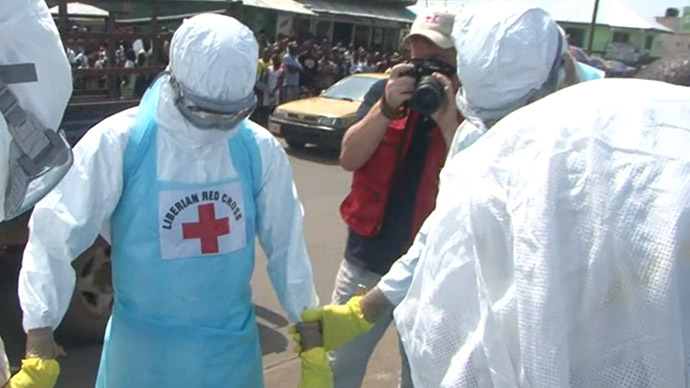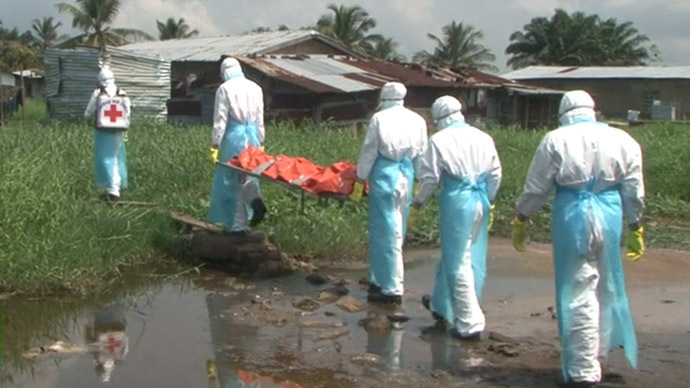RT trails Ebola’s path of devastation in Liberia

Behind the stark headlines of the Ebola outbreak, which has killed thousands of people in Western Africa, are endless tales of hope and courage as average people do what they can to help others.
On March 31, 2014, the West African country of Liberia confirmed its first two cases of Ebola. One month later, six people had already succumbed to the deadly disease and dozens more were infected. Some of the fatalities included unsuspecting doctors, who initially thought their patients were suffering from malaria.
READ MORE:Charity reviews Ebola safety procedures, UK nurse in ‘critical condition’
RT met with members of the Liberian Red Cross, many of them volunteers with little or no previous medical experience who, nevertheless, want to do what they can to help their country in this time of emergency.
Malvin, for example, is an artist who used to decorate the
tombstones of Ebola victims before the government started
cremating the bodies out of safety concerns. As he and several
other Red Cross volunteers prepare to remove a body of an Ebola
victim from a street in Monrovia, the Liberian capital, Malvin
explains that his work is for the living not the dead.
He tells relatives and friends of the Ebola victims, “If you
keep the body of a [Ebola victim] in your house for 2, 3, 4 days,
even the community will get concerned. So we talk to them and
calm them down so we can remove the body.”
Many Africans – either through government public-service messages
or their own experiences - have become all-too familiar with the
symptoms of the Ebola virus, which include fever, muscle pain and
headaches, followed by vomiting and diarrhea.

In the final stages of the disease, sufferers experience decreased liver and kidney functions, as well as internal and external bleeding. For the majority of people who contract Ebola the disease proves fatal.
READ MORE:Experimental Ebola drug helped critically ill doctor – study
The RT correspondent who spent the day with the Liberian Red
Cross had an unpleasant surprise when he returned to his quarters
in the evening. He discovered that the water supply had been shut
off, followed shortly later by the electricity going off. This
made disinfecting himself against Ebola an extra challenge.
In December, 2014, there were 7,690 reported cases of Ebola
infections in Liberia and 3,161 were fatal. Of those who died,
174 were medical workers.












